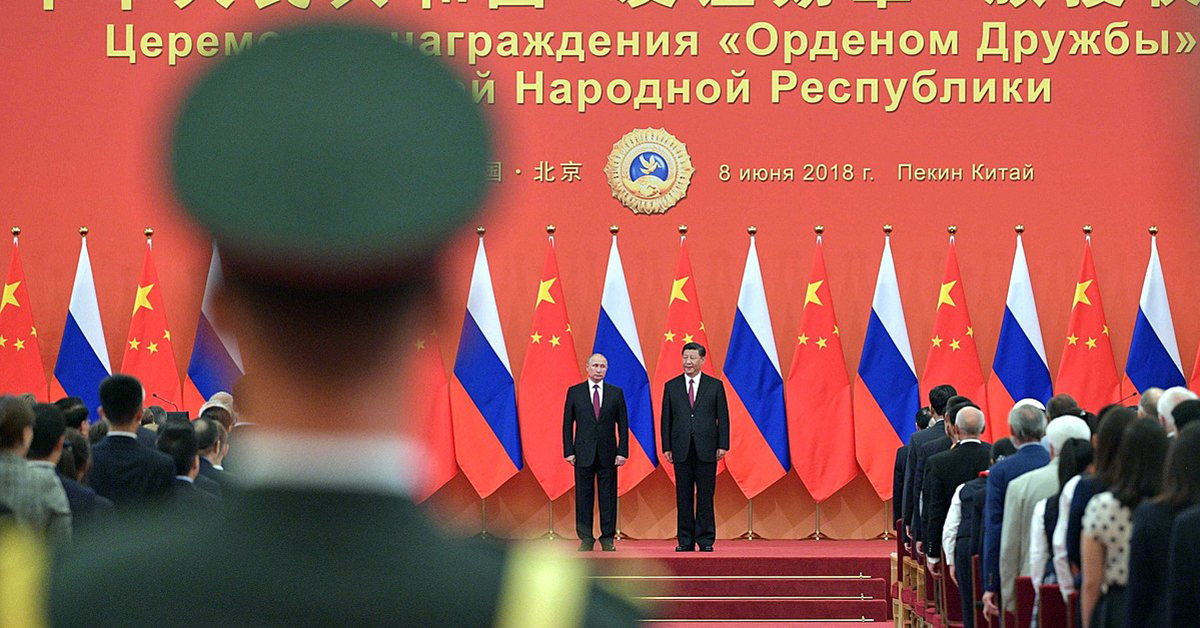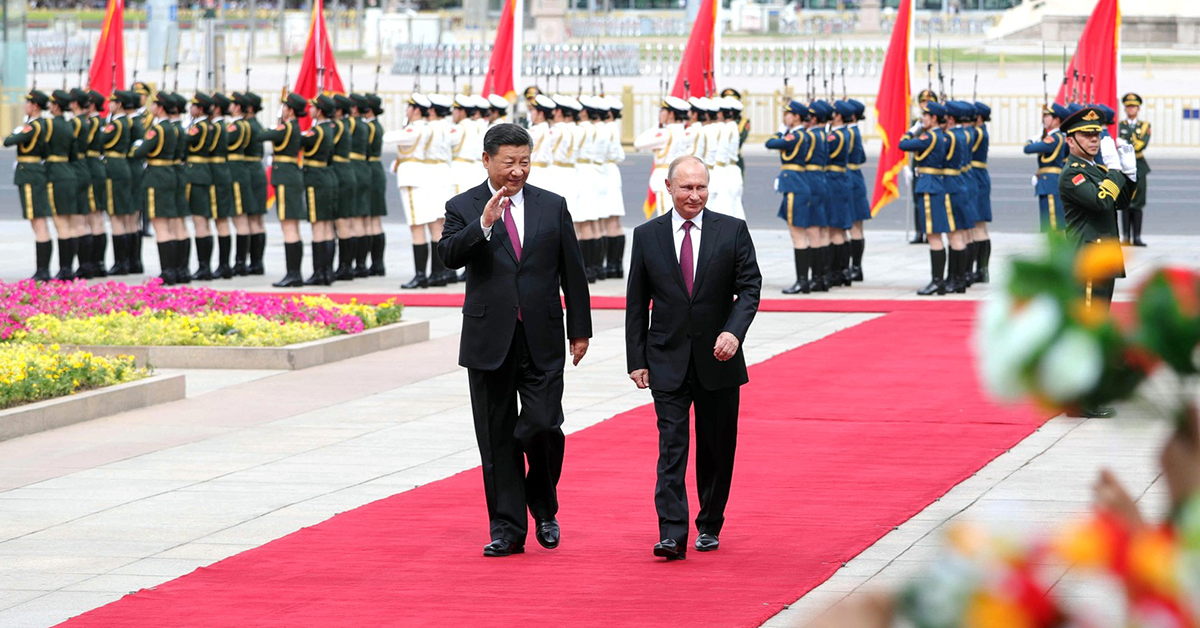The world waits with bated breath as Russia’s invasion of Ukraine unfolds. Weeks before, China and Russia inked a joint communique consolidating a partnership ‘superior to political and military alliances of the Cold War era’ with ‘no “forbidden” areas of cooperation’. The two countries also made a show of solidarity in defiance of the US-led diplomatic boycott of the Beijing Winter Olympics, with Xi and Putin meeting on the opening day of the Games.
Recent events have therefore left many wondering: How will China respond to Russia’s assault on Ukraine? Will Beijing support its ally or attempt to sweep this under the rug? Moreover, will the invasion embolden China to take military action to secure its own territorial claims?
Such questions have led to speculation on the matter of Taiwan. Putin’s decision to recognise the independence of rebel-held provinces Donetsk and Luhansk has further complicated this issue. If Beijing supports the move, it undermines China’s own claims on the self-ruled Taiwan as well as regions like Tibet, Xinjiang, and Hong Kong which have previously enjoyed varying degrees of autonomy. If Beijing voices opposition, then it could be taken as support for Ukraine’s territorial integrity against Russia.
In the case of Taiwan, Beijing has never and will never make such a gesture due to political and historical reasons dating back to the Chinese Civil War.
So, the question remains: what will the invasion of Ukraine mean for Taiwan? Even UK Prime Minister Boris Johnson entertained this question in a speech at the Munich Security Conference. However, China’s Ambassador to the UK Liu Xiaoming torpedoed such comparisons in a tweet: ‘Taiwan is not Ukraine’. Unsurprisingly, this was followed by the well-established Chinese Communist Party line on Taiwan as an inalienable part of China’s territory.
However, read in another light, Liu’s response can also be cause for cautious optimism. Aside from the usual territorial rhetoric, the statement also referred to the ‘peaceful development of cross-Strait relations.’ This echoes the long-standing cross-Strait status quo which has on the one hand enabled Taiwan and China to deter military confrontation while developing cooperation and on the other hand set implicit and explicit rules of behaviour to avoid future conflict. It is a conflictual status quo often characterised by indications of Taiwanese de facto statehood followed by fiery words and sabre-rattling from Beijing. As Liu’s statement on Taiwan and Ukraine does not deviate from this status quo, it seems military action from Beijing is unlikely to follow Russia’s invasion of Ukraine.
China has so far used the event as an opportunity to level criticism at the West. This was evident in a Global Times statement simultaneously lambasting Taiwanese independence as well as G7 support for Ukraine’s territorial integrity. These reactions are part of a pattern we have seen time and time again – turning attention and criticism away from China and back onto Western powers, a trend that is likely to continue for the foreseeable future.
We should nevertheless remain alert to what lessons the Chinese leadership is drawing from the invasion of Ukraine. In an opinion piece, China expert Min Xipei argued that if Washington fails to fulfil its promise to substantively support Ukraine, China may boost its military capabilities to deter the US from defending Taiwan. Beijing is no doubt watching how Western powers are responding to Ukraine to gauge these countries’ commitment to the very principles they espouse.
This article gives the views of the author, and not the position of the China Foresight Forum, LSE IDEAS, nor The London School of Economics and Political Science.
Zhōngguó Shíkè 中国时刻 (China Moments) are short comments which respond to current affairs reporting on China’s domestic and foreign policy.
The blog image, “Flags of the Cross-Strait entities” is licensed under CC BY-SA 4.0.





